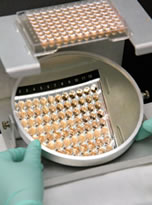Read and report vaccine reactions, harassment and failures.

Meningococcal Disease
- Meningococcal disease is a serious and potentially life-threatening illness caused by the bacteria Neisseria meningitides. The illness can often result in inflammation of protective membranes (meninges) covering the brain and spinal cord of the brain (meningitis) and a serious bloodstream infection (septicemia/meningococcemia). Invasive meningococcal disease can also present as arthritis and pneumonia.
- Meningococcal disease is not easily spread and requires one to be susceptible to the infection and to have regular close contact with a person who is colonizing the bacteria.
- Meningococcal rates are low in the U.S. and have steadily declined since the 1990’s. In 2020, there were approximately 235 cases in the U.S. Of these cases 26 percent were unknown and ungroupable serotypes with 20 percent occurring in children too young to be vaccinated. For 2020, 23 deaths were reported, or less than one percent of cases. Individuals most at risk for contracting meningococcal disease are infants, adolescents, young adults and seniors.
- Between 10-20 percent of individuals are asymptomatic carriers and colonize the bacteria that causes meningococcal disease in the back of their throats. Natural community immunity contributes significantly to low disease incidence. Research shows that about 20 to 40 percent of Americans are asymptomatically colonizing meningococcal organisms in their nasal passages and throats. This colonization boosts an individual’s innate immunity to invasive meningococcal infection throughout life. Infants are protected for the first few months of life by the transfer of maternal antibodies from immune mothers until they can make their own antibodies. The CDC has recognized high levels of innate community immunity and noted that the majority of Americans will experience asymptomatic infection as children or young adults without complications and develop protective bactericidal antibodies against meningococcal disease.
- Invasive meningococcal disease may cause permanent injury including brain damage, hearing loss, loss of a limb or death. Persons noted to be at highest risk of developing complication from meningococcal disease are those with certain genetic factors, HIV, smokers as well as those who have a family member with the disease.
Meningococcal Vaccine:
- There are five FDA approved meningococcal vaccines available for use in the U.S. that target a total of 5 of the 13 serotypes of meningococcal disease. Menveo (Novartis/GlaxoSmithKline) and MenQuadfi (Sanofi Pasteur) conjugate vaccines target serogroups A, C, Y and W-135 meningococcal bacteria. BEXSERO (Novartis/GlaxoSmithKline) and TRUMENBA (Wyeth/Pfizer) recombinant vaccines target serogroup B meningococcal bacteria. PENBRAYA (Pfizer Ireland) conjugate vaccines targets serogroups A, B, C, Y and W-135. Two additional meningococcal vaccines, Menactra (Sanofi Pasteur) and Menomune (Sanofi Pasteur) remain licensed in the US, however, production of both vaccines has been discontinued by the manufacturer.
- The CDC recommends all children receive their first dose of meningococcal serogroup A, C, Y and W-135 conjugate vaccine at age 11-12 and an additional booster dose at age 16.
- The serogroup B recombinant vaccines are available for use and should be considered by adolescents between 16 and 23 years of age; however, in 2015, the CDC’s Advisory Committee on Immunization Practices (ACIP) voted not to routinely recommend this vaccine due cost, low rates of serogroup B infections, and lack of efficacy and safety data.
- According to the CDC, mild vaccine side effects include pain or redness at the injection site, headache, fatigue, muscle and joint pain, fever, chills, nausea and diarrhea. Additionally, the CDC warns that persons receiving any vaccine may collapse (faint), experience a severe allergic reaction, and even serious injury and death. Serious adverse events associated with meningococcal vaccines include anaphylaxis, wheezing, upper airway swelling, difficulty breathing, hypotension, itching, hives, lymph node swelling, Guillain-Barre syndrome, convulsions, facial palsy, vasovagal syncope, paresthesia, transverse myelitis, acute disseminated encephalomyelitis, extensive swelling of the injected limb and injection site.
- As of March 29, 2024, there have been 47,077 reports of meningococcal vaccine reactions, hospitalizations, injuries and deaths following meningococcal vaccinations made to the federal Vaccine Adverse Events Reporting System (VAERS), including 268 related deaths, 5,030 hospitalizations, and 610 related disabilities. As of April 1, 2024 there had been 140 claims filed in the federal Vaccine Injury Compensation Program (VICP) for injuries and deaths following meningococcal vaccination, including 3 deaths and 137 serious injuries.
Food & Drug Administration (FDA)
- Menveo (Meningococcal (Groups A, C, Y, and W-135) Oligosaccharide Diphtheria CRM197 Conjugate Vaccine) Package Insert & Licensing Information
- MenQuadfi (Meningococcal (Groups A, C, Y, W) Conjugate Vaccine) Package Insert & Licensing Information
- BEXSERO (Meningococcal Group B Vaccine) Package Insert & Licensing Information
- TRUMENBA (Meningococcal Group B Vaccine) Package Insert & Licensing Information
- PENBRAYA (Meningococcal Groups A, B, C, Y, and W-135) Package Insert & Licensing Information
Centers for Disease Control (CDC)
- CDC on Meningococcal Disease
- CDC on Meningococcal Vaccine
- Meningococcal ACWY Vaccine Information Statement (VIS)
- Serogroup B Meningococcal (MenB) Vaccine Information Statement (VIS)
Vaccine Reaction Symptoms & Ingredients
Our Ask 8, If You Vaccinate webpage contains vaccine reaction symptoms and more.
Search for Vaccine Reactions
NVIC hosts MedAlerts, a powerful VAERS database search engine. MedAlerts examines symptoms, reactions, vaccines, dates, places, and more.
Reporting a Vaccine Reaction
Since 1982, the NVIC has operated a Vaccine Reaction Registry, which has served as a watchdog on VAERS. Reporting vaccine reactions to VAERS is the law. If your doctor will not report a reaction, you have the right to report a suspected vaccine reaction to VAERS.
NVIC “Quick Facts” is not a substitute for becoming fully informed about Meningococcal disease, meningitis and the Meningococcal vaccine. NVIC recommends consumers read the more complete information following the "Quick Facts", as well as the vaccine manufacturer product information inserts, and speak with one or more trusted health care professionals before making a vaccination decision for yourself or your child.



